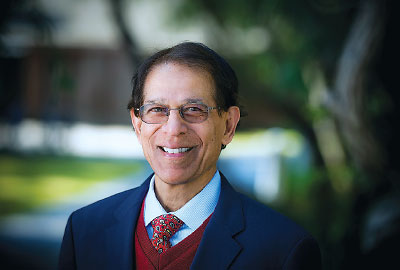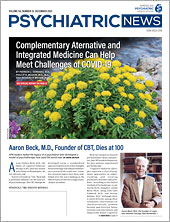“Disease reveals wisdom by its absence.”
—Dilip Jeste, M.D., in Wiser: The Scientific Roots of Wisdom, Compassion, and What Makes Us Good
In 1848, Phineas Gage, a Vermont construction worker, became a fixture in neuroscientific folklore when he survived a horrific worksite accident: An iron rod impaled his skull, destroying much of his frontal lobe. As legend has it, Gage underwent a dramatic change of personality following the accident, such that people closest to him said they no longer knew him. Once regarded as kind, sociable, and thoughtful, he became impulsive, emotionally explosive, and unpredictable.
Gage’s case suggested for the first time that the brain is the seat not only of cognitive faculties, but also of personality and consciousness—until then believed to be aspects of the soul, lacking a biological component. The case also helped to galvanize the science of neurophysiology and the understanding that discrete parts of the brain were integral to aspects of personality and consciousness.
In a similar way, the disease of frontotemporal dementia (FTD) likewise reveals the biological nature of personality. Often the first and most prominent symptom of FTD isn’t memory loss, but personality change: The patient becomes “not himself,” sometimes antisocial, lacking in self-reflection, and emotionally impulsive.
Psychiatrist Dilip Jeste, M.D., a past APA president and internationally recognized expert on schizophrenia and aging, believes that the prosocial, self-reflective attributes lost in Gage’s accident, and in patients with FTD, are components of “wisdom,” for centuries regarded as the province of philosophy and religion. Just as personality and consciousness are now recognized as products of neurobiology and environment, so Jeste believes that science will in time reveal the neurobiology of wisdom.
He is the Distinguished Professor of Psychiatry and Neurosciences and director of the Sam and Rose Stein Institute for Research on Aging at the University of California, San Diego (UCSD).
Jeste and colleagues at UCSD are striving to define wisdom, measure it, and develop interventions to increase individuals’ wisdom and improve mental health. The effort is still on the far frontier of neuroscience—but it is gaining traction and attention. Last year, Jeste delivered a Distinguished Award Lecture on wisdom at the annual meeting of the American College of Neuropsychopharmacology.
In a book published last year, Wiser: The Scientific Roots of Wisdom, Compassion, and What Makes Us Good, Jeste explores recent research on wisdom and its future, and he provides pragmatic advice on how readers can apply wisdom in their own lives. “Wisdom should be practical and not just theoretical,” Jeste wrote. “There’s no point to being wise if one can’t use it effectively in life and living.”
Science of Wisdom in Its Adolescence
Though the concept of wisdom has been around for centuries, empirical research on the subject did not begin until the 1970s. Since then, Jeste said that it has been growing exponentially: Between 2010 and 2019, there were more than 2,000 published papers bearing the word “wisdom” in the title or keywords. Many other published papers have studied aspects of wisdom—empathy, compassion, spirituality—without necessarily calling it as such.
Among psychiatrists, an early pioneer of wisdom-related research was George Valliant, M.D., whose Harvard Study of Adult Development beginning in the 1970s was the first to examine psychosocial and lifestyle factors associated with well-being and the prosocial skills Jeste says are components of wisdom.
But most research on wisdom has been done by gerontologists, psychologists, and social scientists—very little by neuroscientists. “Psychiatry and neuroscience have not yet embraced the concept of wisdom as a construct,” Jeste told Psychiatric News. “But that’s changing. Hard-core scientists tend to reject and dismiss concepts that seem fuzzy. But for centuries, people dismissed the concept of ‘consciousness,’ and until relatively recently, stress was not recognized as biological. Today, no one questions that consciousness and stress are real and are related to biology.”
The science of wisdom is now in its adolescence—no longer new, but not yet mature and changing rapidly, said Jeste. A crucial task will be to better define wisdom and develop tools to measure it.
“As a physician, I know it is important to define the construct in a way that can be measured,” he said. “And we need to realize that whatever we do will change as we learn more. But we need to start someplace.”
Bringing Wisdom to Bear on Loneliness
He and colleagues have started with a working definition of wisdom, based on accumulated research, as a complex personality trait with six specific components:
•
Empathy and compassion: The ability to understand people’s feelings and act on that understanding to help them when needed.
•
Emotional self-regulation and control: The ability to maintain control of one’s emotions under different circumstances.
•
Self-reflection: The ability to think inwardly: “What did I do that I could do better?”
•
Accepting uncertainty and diversity of perspectives: The ability to say: “I don’t have to agree with her, but I accept that she has an alternative point of view.”
•
Decisiveness: The ability to act decisively even in the face of uncertainty and ambiguity.
•
Spirituality: An openness to something above and beyond the material.
In a paper published in 2009 in the Archives of General Psychiatry (now JAMA Psychiatry), Jeste and Thomas W. Meeks, M.D., then a research fellow at UCSD, sketched out a possible neurobiology for these components of wisdom in which the prefrontal cortex figures prominently in emotional regulation and decision making; the lateral prefrontal cortex facilitates calculated, reason-based decision making; and the medial prefrontal cortex and reward neurocircuitry (ventral striatum, nucleus accumbens) enable prosocial attitudes and behaviors.
More recently, Jeste and Michael Thomas, Ph.D., an assistant professor of cognitive neuroscience at Colorado State University, developed a 28-item scale for measuring wisdom.
As chair of APA’s Presidential Task Force on Social Determinants of Mental Health, appointed by APA President Vivian B. Pender, M.D., Jeste wants to put wisdom to use to solve real-world problems—especially addressing loneliness and social isolation. “Much research has shown that loneliness is as bad for health as smoking 15 cigarettes a day and worse than mild to moderate obesity,” Jeste said.
Moreover, he continued, loneliness and wisdom are inversely related, and wisdom is modifiable—it can be enhanced or improved in individuals. In a meta-analysis published in JAMA Psychiatry in May 2020, Ellen Lee, M.D., an assistant professor of psychiatry at UCSD; Jeste; and colleagues showed that interventions to enhance spirituality, emotional regulation, and prosocial behaviors are effective in a sizable proportion of people with mental or physical illnesses. They concluded: “The modern behavioral epidemics of loneliness, suicide, and opioid abuse point to a growing need for wisdom-enhancing interventions to promote individual and societal well-being.”
Jeste believes the future of wisdom research is promising and will likely include imaging and genomic studies, identification of biomarkers for wisdom, and even development of chemicals that might increase compassion and empathy.
“Psychiatry should embrace this future,” he said. “At the same time, psychiatry should move away from its present emphasis on symptoms and disability. A lot of people know about the value of psychosocial interventions. But these should focus not just on reducing symptoms but on enhancing resilience, optimism, empathy, and compassion—all of which are associated with better health.” ■
The Jeste-Thomas Wisdom Scale is posted
here.
“Neurobiology of Wisdom: A Literature Overview” is posted
here.
“Outcomes of Randomized Clinical Trials of Interventions to Enhance Social, Emotional, and Spiritual Components of Wisdom: A Systematic Review and Meta-analysis” is posted
here.

